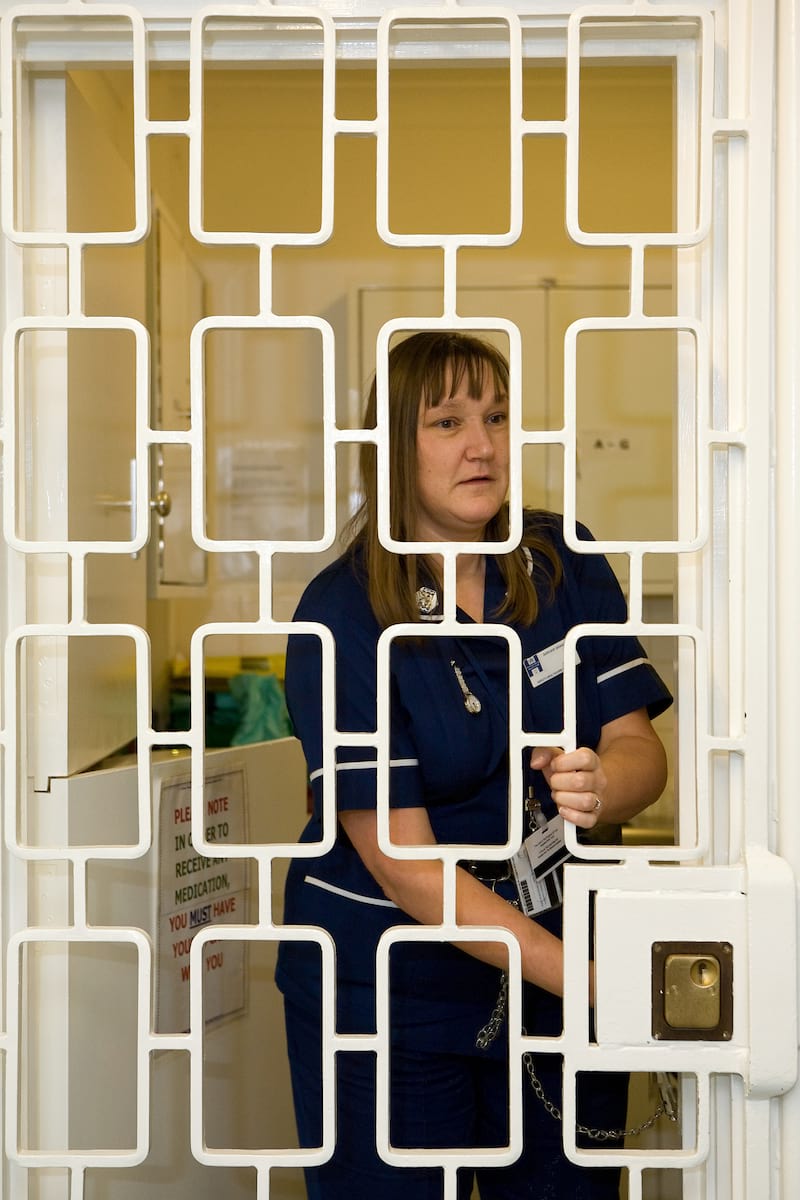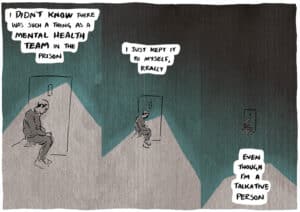A new (23 April 2019) report from Clinks sets out key principles and recommendations towards developing a whole prison approach to good mental health for people in contact with the criminal justice system, especially those with protected characteristics. The report “Whole prison, whole person: How a holistic approach can support good mental health in prison” sets out three key principles that any whole prison approach should adhere to:
- Respond to the specific needs of every individual within the prison population, including people from groups protected under the Equality Act (2010), many of whom are over represented in the criminal justice system and/or experience significantly poorer outcomes than the general population.
- Ensure continuity of care throughout an individual’s sentence, recognising and meeting the needs of each person at every stage of their journey through custody.
- Create a wellbeing culture for all, that is embedded in the structure and core business of all those working in the custodial estate.
Respond to everyone’s individual needs
For people with protected characteristics there will often be different and specific factors impacting their mental health in prison and their ability to access the services they need. Many people with lived experience who informed this report said support in prison was a one-size-fits-all model that, in reality, didn’t fit the needs of anyone.
Participants also said that many people with protected characteristics face frequent discrimination and racism whilst in prison. Such discrimination will often be intersectional, meaning different aspects of people’s identity –
including race, gender, class, sexuality or disability – can interact and overlap, to generate new, multiple and complex forms of discrimination or disadvantage all of which can have an additional impact on wellbeing and mental health.
They said people in prison should be treated as individuals with bespoke support, but that in the current context of overcrowding, overstretched staff and under-funding in prison, this was rarely achieved.
The Offender Manager in Custody model (OMiC) was praised by participants for allowing time between staff and individuals to build relationships, build trust and receive individualised and bespoke support. The OMiC model is currently being rolled out across the adult male estate, and involves each person in prison being allocated a
member of prison staff as a key worker, and given a 45 minute session per week with their key worker. Each key worker will manage a caseload of around six prisoners. OMiC was seen as having particular potential for supporting people with protected characteristics, as the model creates opportunities for prison staff to develop knowledge and understanding of the specific social, cultural or spiritual needs of individuals.

Continuity of care
Almost half of the people given a prison sentence over a 12 month period will serve six months or less and 63% of those that serve a custodial sentence under 12 months will go on to reoffend within a year. Providing mental health support for such a dynamic prison population is undoubtedly hard.
This was identified this as a major challenge. Short sentences are long enough to separate people from jobs, accommodation and family, but not long enough to provide rehabilitative support in prison.
Participants said there is not enough access to effective mental health services, there is not enough time to plan for effective resettlement and overcrowded prisons and overstretched staff mean providing support to individuals is difficult.
Some challenges to the continuity of care are logistical, such as the lack of transferring of information about health and care needs with individuals as they journey through the criminal justice system. This can result in a person undergoing multiple assessments, which can be retraumatising.
The commitment in the NHS Long Term Plan to conduct a full roll out of the health and justice digital patient record information system across all prisons, including the digital transfer of patient records before custody, in custody and on release, is therefore welcome.
However, logistical solutions alone will not ensure continuity of care. The prison population includes many vulnerable people who may need additional support to engage, and remain engaged, with health services.
A whole prison approach cannot therefore, be adopted in isolation of the wider social determinates of poor mental health experienced by those in prison, or divorced from community based support and services people will access before and after serving their sentence.
Creating a wellbeing culture
Many participants from across workshops and focus groups described high levels of discrimination and racism directed at people with protected characteristics in prison, both from staff and prisoners. The cumulative impact of this frequent abuse was described as having serious impacts on people’s mental health.
A whole prison approach should also ensure that the prison is embedded within wider systems and that effective connections to the community outside of prison are forged. Effective partnership working between
prisons, statutory services and the voluntary sector is essential.
Involving experts by experience is also seen as a key way to improve the quality and impact of the services on offer and enable individuals to build a new identity which supports their own wellbeing and journey to desistance from crime.
Thanks to Andy Aitchison for kind permission to use the images in this post. You can see Andy’s work here.









One Response
I am happy to read this. People in prisons deserve to be treated well. They need this approach to stay healthy.